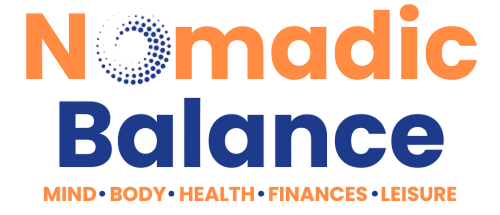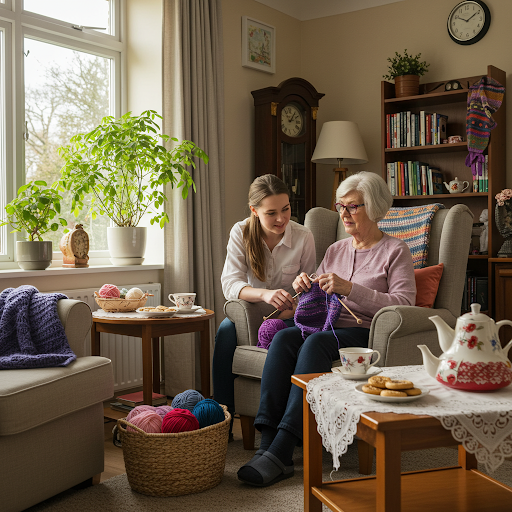Explore how engaging in traditional hobbies can provide therapeutic benefits, reduce stress, and enhance well-being, supported by expert insights. Whether it’s knitting, gardening, or baking, these timeless activities aren’t just charming—they’re science-backed ways to improve mental health.
In fact, reconnecting with traditional hobbies mental health practices might just be the self-care strategy you’ve been overlooking. Ready to dive into why grandma’s favorite pastimes are trending again—and how they can make you feel better?
The Power of Traditional Hobbies on Mental Health
It turns out, grandma was onto something. Engaging in hobbies like knitting, gardening, and baking offers real mental health benefits—and science backs it up.
Why Nostalgic Activities Are Soothing
- Sense of accomplishment: Completing a craft project or nurturing a plant gives an instant mood boost.
- Tactile stimulation: Handling yarn or kneading dough is surprisingly therapeutic.
- Slower pace: These hobbies force you to slow down—goodbye, racing thoughts.
🧠 Did you know? A 2022 study published in the Journal of Positive Psychology found that people who regularly engage in creative hobbies report lower levels of anxiety and depression.
Trending Hobbies with Mental Health Benefits
Some old-school hobbies are now modern self-care staples:
- Knitting & Crocheting: Repetitive motions calm the mind, similar to meditation.
- Gardening: Proven to reduce cortisol levels and increase serotonin.
- Baking & Cooking: Acts as a form of mindfulness, plus you get cookies.
- Woodworking: Physical focus helps reduce anxious thoughts.
- Painting or Sketching: A creative outlet for emotions you can’t put into words.
“Engaging in traditional hobbies mental health practices like knitting or gardening creates a meditative state, allowing people to reset emotionally,” says Dr. Emily Sanders, Psychologist and Behavioral Health Expert.
Recent Stat You’ll Love
According to the American Journal of Health Promotion (2023), adults who engage in nostalgic or traditional hobbies for just 2 hours per week report a 25% decrease in stress levels.
How Knitting, Gardening, and Baking Became Self-Care Rituals
Knitting: Anxiety Relief Loop by Loop
What is it about knitting that calms us down?
- Repetitive motion lowers heart rate
- Portable—great for calming anxiety on the go
- Releases dopamine—your brain’s happy chemical
Ever wondered why knitting circles are suddenly popping up again? Turns out, our brains crave these calming rituals. Who knew grandma was the original mindfulness coach?
Gardening: Getting Your Hands Dirty for Stress Relief
Can playing in the dirt really make you happier? Research says yes.
- Exposure to soil microbes boosts serotonin naturally
- Increases Vitamin D from sunlight
- Encourages mindfulness and patience
Pro Tip: Start small with herbs or succulents if you’re a plant newbie.
Baking: Therapy You Can Eat
Few things are as satisfying as pulling a loaf of homemade bread out of the oven. Baking works wonders for mental health because:
- It’s creative: Experimenting with recipes engages your brain.
- It’s sensory: Smells, textures, and tastes ground you in the moment.
- It’s rewarding: You get to literally taste your success.
Ever felt instantly better after baking cookies? You’re not alone. Baking therapy is real—and delicious.
The Science Behind Traditional Hobbies and Emotional Well-Being
Mindfulness Without the Yoga Mat
What if meditation isn’t your thing? Good news—you can achieve mindfulness by:
- Sipping tea while gardening
- Counting stitches while knitting
- Focusing on flavors while baking
Social Connection: Old-School Activities, New-School Community
- Join a local knitting group or gardening club
- Find online baking forums and recipe swaps
- Attend crafting workshops in your area
Building Routine and Purpose
Traditional hobbies give structure to your day, especially beneficial for:
- Retirees
- Remote workers
- Anyone struggling with anxiety or depression
FAQ: Your Burning Questions About Traditional Hobbies and Mental Health
1. How do traditional hobbies support mental health?
Traditional hobbies create structure, promote mindfulness, and reduce stress—improving overall well-being.
2. Can hobbies like knitting or gardening help with anxiety?
Yes! Activities like knitting lower heart rate and calm the mind, while gardening reduces cortisol levels—both easing anxiety.
3. What is the best traditional hobby for improving mental health?
There’s no one-size-fits-all, but activities like gardening, knitting, and baking show strong mental health benefits.
4. Are there studies that prove traditional hobbies help mental health?
Absolutely! Studies from the Journal of Positive Psychology and the American Journal of Health Promotion confirm the link between traditional hobbies mental health practices and reduced anxiety and depression.
5. Can baking really act as therapy?
Yes! Baking engages your senses and offers a creative outlet, providing therapeutic mental health benefits—and you get a treat at the end!
References:
- Journal of Positive Psychology, 2022: Study on hobbies and reduced anxiety
- American Journal of Health Promotion, 2023: Data on stress reduction through hobbies
- Expert source: Dr. Emily Sanders, Psychologist & Behavioral Health Expert
📱 Want more inspiring content and exclusive lifestyle tips?
Follow us on Instagram @nomadicbalanceblog for daily inspiration and first access to our latest guides.

